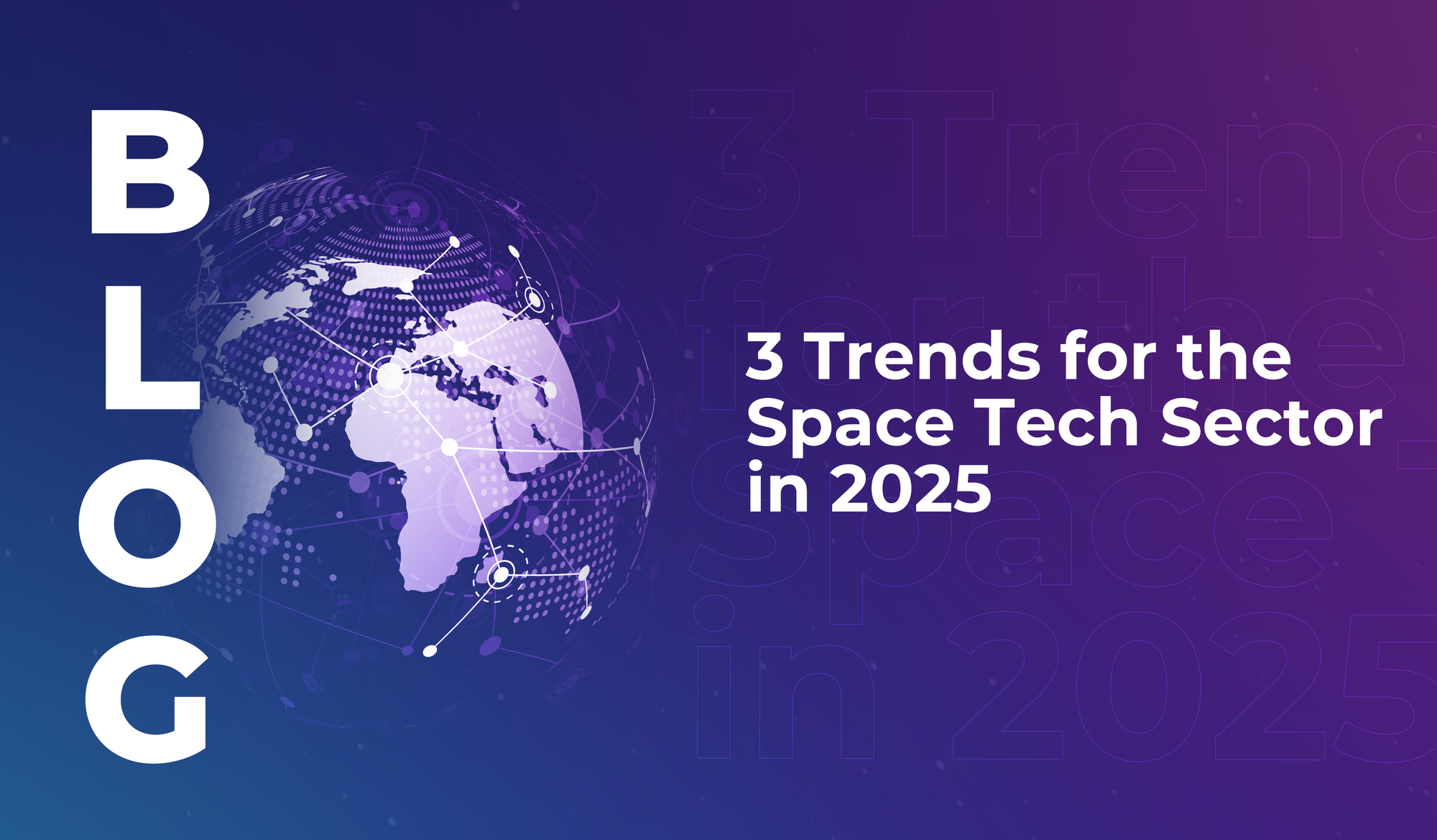
The power of a personal brand in tech (and how to build one)
We ask personal branding expert Maha Abouelenein (Founder and CEO at Digital and Savvy) if every tech founder and CEO should build a personal brand. The short answer is yes.


Looking back at the year just gone, we’re in awe of the space tech developments that have shaped the sector. Space news in 2024 has been dominated by achievements and discoveries powered by advancements in tech.
The Hubble and JWST telescopes joined forces to image two spiral galaxies, resulting in some of the most mind-blowing space imagery we’ve ever seen. SpaceX launched 104 rockets, and made history with the world’s first ever rocket catch on return to Earth.
Collectively, the industry has discovered distant galaxies and the fastest spinning stars in the Universe; simulated surgical procedures in space that could change the possible durations of future space trips in a dramatic way; and so much more.
As we look ahead to 2025, here are three of the major trends shaping developments in the space tech sector.
Earlier this year we interviewed Jane Poynter (Co-Founder and Co-CEO at Space Perspective); one of many innovators working on taking people to the stars on commercial space flights.
As we move into a new year, commercial space opportunities continue to grow; and the private sector becomes a driving force for space tech innovation. Reusable rockets, developed by companies including SpaceX and Blue Origin, are enabling dramatically lower costs-to-launch – which is opening up the potential for smaller startups to enter the market.
Simultaneously, NASA and other government agencies are increasingly leveraging private sector partnerships to enable successful space projects.
And space tourism is an increasingly feasible commercial opportunity for organisations like Space Perspective, with the ambition to make orbital and suborbital flights available to private citizens.
Between January and October 2024 there were 203 orbital launches – with the year’s final figure yet to become clear. This means we’re highly likely to break the 2023 world records of 211 orbital launch attempts, and 211 successful orbital launches.
Next-generation launch vehicles are expected to enable increasingly ambitious missions to the Moon, Mars, and further into space; and plans for 2025 launches are already shaping up.
And these are just a handful of many launches that are going to make 2025 an incredible year for space exploration and space tech advancements.
Deep space exploration is one of the most exciting possibilities that comes with space tech development and next-gen space launches. It’s the stuff dreams are made of – we’re building our capacity to travel further and for longer, and uncover secrets of space that have puzzled humanity since…well, forever.
Both government space agencies and private companies are setting their sights on the stuff we can’t (yet) actually see, with missions to Moon, Mars, and far beyond in their planning stages.
Breakthroughs in robotics technologies, spacecraft propulsion, and life support systems in orbit are critical to the success of deep space missions – and innovators are working hard to increase the capabilities of all of these elements.
Sustainable space technology will be a key driver of deep space opportunities. Technologies that can clean up space debris, along with sustainable propulsion systems that enable spacecraft to travel incredible distances without the need to carry fuel, will make it possible for humans to go further in space.
It’s hard not to be a little bit obsessed with space, isn’t it? At LEAP, we introduce you to the latest research and developments in space technology, and give you the chance to learn directly from the visionary leaders who are creating new pathways for humans in space.

We ask personal branding expert Maha Abouelenein (Founder and CEO at Digital and Savvy) if every tech founder and CEO should build a personal brand. The short answer is yes.

Discover the key drivers of positive smart city development, including collaboration, data literacy, and a sharp focus on sustainability.

Some of the most experienced tech investors in the world share their insights and advice to help new investors on their path to success.

We ask personal branding expert Maha Abouelenein (Founder and CEO at Digital and Savvy) if every tech founder and CEO should build a personal brand. The short answer is yes.

Discover the key drivers of positive smart city development, including collaboration, data literacy, and a sharp focus on sustainability.

Some of the most experienced tech investors in the world share their insights and advice to help new investors on their path to success.